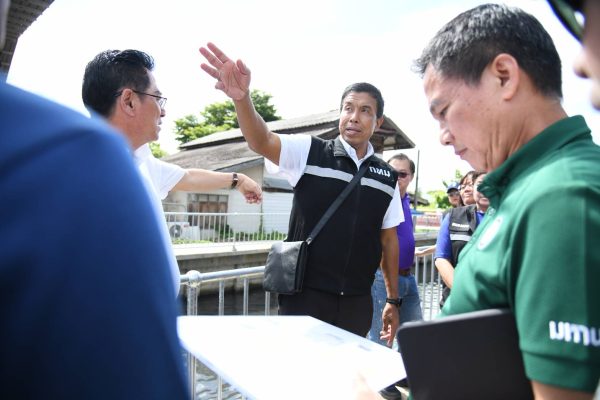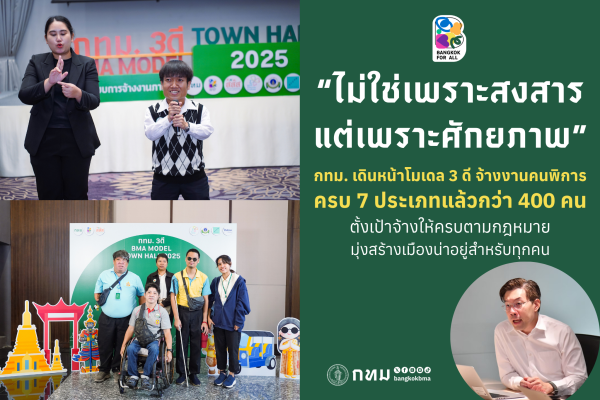Bangkok is urging farmers to turn their rice stumps into sellable cubes instead of burning them and adding to PM2.5 pollution.

PM2.5 refers to dust particles measuring 2.5 micrometres or less in diameter that are linked with heart and lung diseases as well as cancer.
Pornphrom Vikitsreth, adviser to the Bangkok governor, on Tuesday visited a community rice miller and rice straw processing plant in Khlong Sam Wa district as part of a campaign to reduce city hotspots caused by rice-stubble burning after harvest.
“Satellite images taken by GISTDA show that last year there were 36 hotspots in Bangkok – 18 in Nong Chok, 7 in Khlong Sam Wa, and 11 in Lat Krabang,” said Pornphrom. “These hotspots cause air pollution from smoke and contribute to PM2.5 problems in the city.”
The city is looking for solutions that reduce burning of rice paddy as farmers prepare for the next growing season. One promising approach that has minimal impact on farmers is to compress rice straw into cubes using tractors provided by the Bank for Agriculture and Agricultural Cooperatives, he said.
The rice straw cubes can then be transported to a plant to be processed and stored for sale. The production cost is only 25 baht per cube, which can be sold to animal farmers as feed, furniture manufacturers as a raw material, logistic operators as shock absorbing material, and biomass power plants as fuel.
“Turning rice stumps into straw cubes is an excellent way to add value to waste material, generate additional income for farmers, and reduce the burning of fields which is one of the sources of PM2.5,” said Pornphrom.





